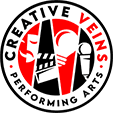How Do I Choose an Acting Coach?
This question pops up a lot, especially among our students taking their acting dreams from Jacksonville to new cities. Let’s be real—Jacksonville isn’t exactly overflowing with acting coaches. I can count on one hand, the folks who advertise themselves as coaches, and on a few fingers, those I’d actually trust to coach me or anyone I know. It’s a small pond here, and not everyone swimming in it knows how to paddle if you catch my drift.
Living in a city where acting isn’t the main gig means you’ve got to be extra careful. There’s no set standard, and it’s easy to get fooled. There are even people here teaching acting who’ve never even stepped on a stage. It’s wild!
So, when you’re on the hunt, here’s what matters most: First, make sure your coach has actually been in the actor’s shoes themselves. Second, they should know their stuff regarding acting techniques that are tried and true. And third, their program should line up with what you’re aiming for in your acting journey.
By sticking to these pointers, you’ll steer clear of the snake oil salesmen and find someone who can really help you shine on stage or screen.
What Are Some “Universally-Practiced” Acting Techniques?
Below are the most universally known and practiced acting techniques taught by acting coaches all over the world:
- Meisner
- Strasberg
- Practical Aesthetics
- Stanislavski
- Chekhov
- Uta Hagen
- Viola Spolin
- Stella Adler
Alright, let’s break this down in simpler terms. Your acting technique is like the groundwork for everything else you do in acting. Think of it like the recipe for your favorite dish—sure, there are different ways to make it, but you need that solid base to get it just right.
The techniques we’re talking about here? They’re not some secret sauce. They’ve been tried and tested by actors you probably admire. We’re talking about methods that have been around for ages, passed down from one generation of actors to the next. They’re like the classic hits of acting—timeless and effective.
Now, here’s the thing: there’s no one-size-fits-all technique. It’s like cooking—some folks swear by scrambling, others are all about the sunny side up. You gotta try out different techniques and see what clicks for you. It’s all about finding your flavor, so to speak.
Once you’ve found your groove, it’s all about practice, practice, practice. Just like mastering that perfect omelet, you gotta keep at it until you’ve got it down pat.
Now, why bother with all this technique stuff? Well, because it’s the key to delivering performances that really hit home. It’s what helps you connect with your audience, make them feel what you’re feeling, and leave them wanting more. And who doesn’t want that?
What Should I Look For?
Once you find an acting coach, I suggest you do the following:
- Check out what they teach, specifically what techniques
- Find out about the instructor(s), their experiences, where they trained, and what acting credits they have under their belt (hint: it doesn’t matter WHO they “claim” to know—it matters WHAT they know and how they are going to make you a brilliant actor).
- Ask to see the acting coach’s demo reel (even if it’s old, great acting is still great acting, and you’ll be able to see the ability of the person who will potentially teach you).
- Read reviews from their students and see what they’ve accomplished, their skills, and what types of roles/productions they’ve booked since they started training (hint: if it’s mostly background work and free, local projects, that’s not a good sign).
- See if the studio offers additional opportunities for growth and continuing education outside of class, such as workshops, student projects/productions, resource pages, progress reports, professional development lectures, taping services for auditions, guest speakers, student film casting pages, actor showcases, acting technique workouts/meetups, for example.
Anything Else I Should Know?
Understanding the importance of selecting the right acting studio is crucial as you embark on your journey in the acting world. Your training’s foundation lies in choosing a studio that teaches universally recognized acting techniques, like the ones we’ve discussed. Straying from these established methods could mean missing out on essential foundational work.
Additionally, relying on a studio or coach that has developed its own technique poses risks. If you ever need to relocate or if the studio closes, it could disrupt your training continuity. Consistent training is key to honing your skills, so it’s essential to consider the accessibility and longevity of your chosen studio.
Before making any financial commitments, it’s wise to do your homework. Take the time to research the credentials, methodologies, and reputation of any potential studio or coach. This proactive approach can help mitigate risks and ensure that your choice aligns with your long-term goals. In the realm of professional development, informed decision-making through thorough research is invaluable.







